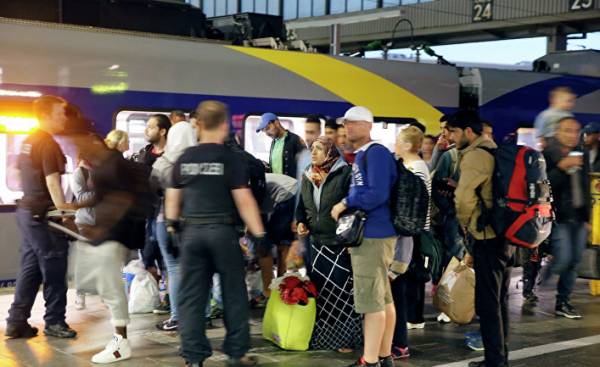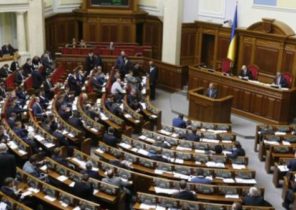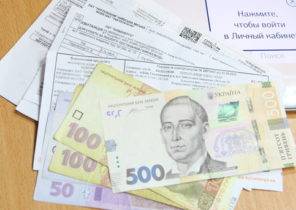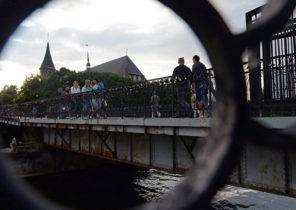
In any Union, combining actors with different interests, is the problem of “skimming” — or, to use a beautiful German word, Rosinenpickerei (“looking for cheese” — approx. transl.). The European Union is no exception. At the moment, some of the joined unit post-Communist countries confronted with accusations that they are doing exactly that, coming into conflict with the EU rules. Perhaps they will soon have to pay for it.
On Tuesday, the European Commission has voted to start proceedings about the violation of Poland, Hungary and the Czech Republic to the European rules. This is due to the decision of these countries to accept refugees despite the EU regulation adopted in 2015. Part of the refugees were only a pretext. In fact, European countries were not part of the Communist bloc, I suspect your neighbors to move away from European liberal democratic values. To use the issue of refugees more convenient for them than to convict the countries of Eastern Europe in breach of the principle of rule of law.
The EU wants these three post-Communist countries have submitted a legally binding decision to resettle 160 thousand refugees. In accordance with the agreement, from 2015 for different countries quotas had been established, and every three months these countries have to accept a certain number of people. You can only Britain, Denmark and Ireland.
Hungary has not accepted this scheme any refugees. Poland the last time they took on this responsibility in December 2015, when the previous liberal government, but in the end also no accepted. Czech Republic accepted 12 refugees and for a year did not take any commitments.
The top three countries argues that this scheme should not be mandatory, although the established quota is relatively low. Poland should take 6182 person from Italy and Greece, Czech Republic — 2691 man, and Hungary — 1294 man. And Hungarian Prime Minister Viktor Orban, the Polish government, led by nationalist party “law and justice” openly oppose the participation of Eastern Europe in any attempt to help the refugees. They cite security concerns and economic problems. Hungary and Slovakia (which regularly undertakes, but actually let the little refugee), trying to achieve the abolition of quotas, turned to the European court. A preliminary decision is expected to be sentenced in July, but the European Commission is so confident in his victory that he decided not to waste time and start your trial.
Officially it can result in moderate financial penalties. In fact, however, we are talking about prevention, meaning that the rebellious country could lose a lot more.
The leader of the German Social democratic party, Martin Schulz (Martin Schulz) directly warns East Europeans, saying that they want to reconcile the irreconcilable: “So, if we are talking about agricultural policy, then: “Yes, please.” If we are talking about subsidies: “Yes, please.” But if we are talking about solidarity politics in the question of refugees: “no, Thanks”. You can’t.”
Striking looks one more fact: on the commencement of the trial declared, stressing that poor countries should not treat the EU as their own piggy Bank, the Greek, the European Commissioner for home Affairs and migration Dimitris Avramopoulos (Dimitris Avramoupolous). “Europe is not only a shared dream, this is the common difficulties and challenges,” he said. It seems that in this matter the South of Europe United with the Germans and against the Eastern Europeans they act as a unit.
Schultz as an opposition politician can speak about post-Communist countries bolder than Chancellor Angela Merkel. When in late March, it asked whether to punish them for what they are developing in an illiberal direction, she refused to do so “in the moment” — noting, however, that they must comply with EU rules. However, supporters of fiscal measures against the recalcitrant countries are not only the social Democrats, partners in Merkel’s party in the ruling coalition, but a party of the Chancellor.
Poland, Czech Republic and Hungary are among the top five recipients of funding from the EU. In 2015, the total amount received of subsidies amounted to 19.8 billion euros. Germany wants to partly link this funding with compliance with the law, however, to achieve this issue even a formal European consensus — not to mention the approval of sanctions — it would be difficult.
However, the refugees are another matter. If the three countries continue to openly defy the EU, the European Commission would have serious reason to propose sanctions. The European Council, composed of national leaders, has certain powers in the budgetary sphere, however, his objection by a qualified majority to overcome the European Parliament, where Eastern Europeans are in the minority, and the idea of solidarity is very popular.
While these threats do not produce much effect. The Prime Minister of Poland Beata Szydlo (Beata Szydlo) said recently that her country could not accept any refugees at all. Poland and Hungary with the same zeal continue to curtail ones freedom, to protect which was created by the European Union. Hungary has just passed a new law against NGOs with foreign funding, similar to that which operates in Russia. Just six months ago the position of these countries seemed invulnerable. In Western Europe intensified populist parties and the EU leadership is afraid to alienate any of their members. Now, however, the members of the Visegrad group clearly conceited.
The victory of Emmanuel Macron in France and the growing rating of Merkel means “two-speed” European Union becomes a reality: the Eurozone is likely to move towards closer integration, leaving others behind. The President of the European Parliament, the Italian Antonio Tajani (Antonio Tajani) — now proposes to refocus the EU budget to agricultural subsidies, which in large quantities get Eastern Europeans on such issues as immigration and climate change that are important for key members of the Union.
Rosinenpickerei Eastern European countries increasingly seems like a useless gimmick. The nationalist government in Eastern Europe is unlikely to back down without losing face. However, if they start to lose the European funding and if it becomes clear that Europe leaves them, going forward, they can face serious difficulties in the election.







